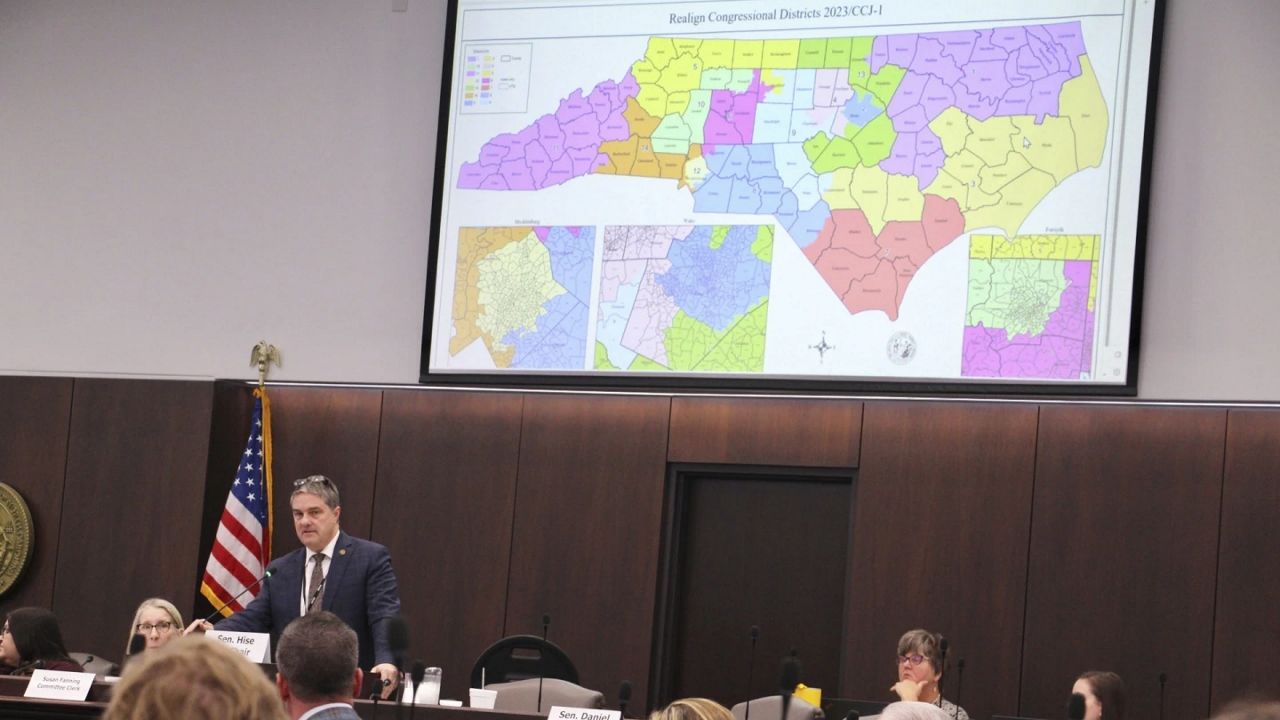CHARLOTTE, N.C. — When he wasn’t in the wrestling ring, Gwyn Brown said her son, Laird Ramirez, was usually outside, trying to nail the newest trick on his skateboard.
“He was proud of how quickly he wore out his boards,” Brown said. “Because that means he was skating hard, and he was doing good stuff, and that was really cool.”
Whenever he broke a board, the pieces would be added to his wall.
The broken boards hung like trophies, displaying his passion. That passion followed when they moved from California to Cornelius, North Carolina, in 2019.
“He met all of his friends through skating at Birkdale,” Brown said. “He was immediately encouraged to join the group. And they were at my house a lot, and I loved having a house full of boys doing silly boy things.”
It’s because of those close relationships, Brown thought she had an idea of what her son was getting into with friends.
“He was a little bit moody, like a teenager is,” Brown said. “But he never appeared altered, ever.”
So when Laird asked to go stay at a friend’s house on June 30, she thought nothing of it.
“I never caught him in a lie,” Brown said. “I had no reason to distrust him.”
But the next morning, Brown said Laird never came home.
“I got a phone call from his dad practically screaming, saying, 'Did you get a phone call?' I'm like, 'No,'” said Brown. “He’s dead.”
“It was the worst, horrific moment of my entire life,” Brown said. “And the one paramedic just looked at me and said, 'He's died.'”
Detectives later told her Laird had died of an overdose.
“Fentanyl presumptive positive at this point,” Brown said. “So they're presuming that. But we don't have the solid tox screen back yet.”
According to the CDC, the number of adolescent overdose deaths have increased substantially since the end of 2019.
A CDC study shows in 2021, 84% of overdoses for teens involved illicitly manufactured fentanyl, some of which came in the form of counterfeit pills.
It's a trend law enforcement officials said they are seeing across the state.
For Gaston County Police Captain Jeff Phelps, he even fears for his own kids.
“I have a son who's 22, and I know he's sick of hearing it from me, but he's young and I remind him all the time, do not take anything that you don't know where it came from,” Phelps said. “Because it could it could kill you.”
Phelps oversees the VICE team. He said so far this year Gaston County police have seized more than 71,000 grams of fentanyl. That's a staggering increase from 2021, when Phelps said they seized about 2,000 grams of fentanyl over the whole year.
Even more concerning, Phelps said, during recent busts, detectives have found professional-grade pill presses.
“What shifted is fentanyl being in counterfeit form,” Phelps said. “I think that's the biggest thing our school age kids face right now, is the counterfeit press pills.”
These are allowing dealers to create counterfeit pills that look just like prescription pills with any substance, including cheap and widely available fentanyl.
“Now someone can be handed something that looks like a Xanax and ends up being pure fentanyl and it kills them,” the captain said. “It’s that easy.”
Brown said as a parent, she’s always tried to be open. Still she said she isn’t naive that teens keep things to themselves.
“We certainly talked about drugs on a regular basis,” said Brown. “And he's like, 'no, I don't mess with the hard stuff. Absolutely not. I'm not going to do that.'”
After Laird’s death, Brown said Laird’s friends told her that Laird had been using what he thought was Percocet.
“Obviously, he didn't think Percocet was hard stuff,” Brown said.
The revelations kept coming for Brown after detectives suggested looking at Laird’s CashApp transactions.
“I didn't see him impaired, but I saw those CashApps all the time because I checked his bank account,” said Brown. “If I had known that was likely drugs going out, then I would have been able to do something.”
“I have days where all I want to do is cry, and then I have days like today where I'm so numb and so disassociated that I'm, I'm going to wake up,” said Brown. “You know, this is just really just a dream, and I'm going to wake up and he's going to walk in the door. Hey, mom, do we have any food? What's for dinner? You know?”
Since Laird’s death, Brown has heard from multiple other Hough High School students about their own struggles with addiction.
“Everybody thinks, it's not my kid. And my kid doesn't do that. I thought that, you know,” said Brown. “I didn't think that Laird would make such a dumb decision, but he did. And, you know, these kids are not understanding the cause and effect of their actions.”
Which is why she is calling on the Mecklenburg County community, and the school system to rethink outdated drug programs.
“We have to do more than check a box there,” she said. “There's no margin of error. There's no, you know, half a pill can kill, but certainly one pill can kill. And we need kids to understand and be scared of that.”
Brown said police are still investigating Laird’s case, but did arrest a 21-year-old man in connection with his death for distribution.
We reached out to Charlotte Mecklenburg Schools about their current drug education programs, they told us in a statement they have been alerted to less than five incidents of drug paraphernalia and one instance of possession of an illicit drug at Hough High School.
They also said anti-drug education in the high schools occurs as part of the NC Health Education Standards.





)


